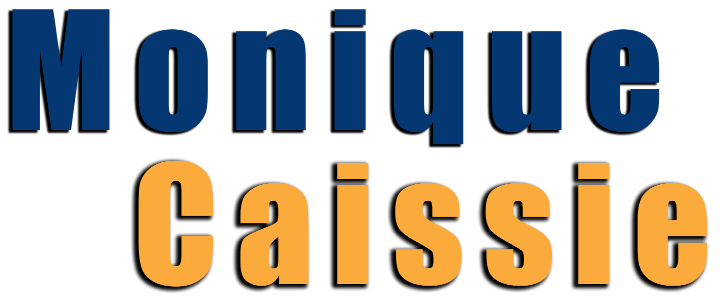 (As published in Huffington Post)
(As published in Huffington Post)
Susan was a fellow office manager. She was given a budget to decorate for Christmas and as she transformed our offices with green and tinsel, she also loudly voiced what a waste of time and money this was. To her, Christmas was about family – not work. The daily snippy comments were annoying.
As a group, every year, we made up a food basket, complete with gifts for the kiddies, for a local charity drive. People had been generous that particular year and it looked like we would be able to help two families instead of one.
“No one is useless in this world who lightens the burdens of another.” Charles Dickens
Susan did not hesitate to loudly state that people who got food baskets had more money than us. She claimed we we were being scammed. She even complained about the Christmas party which was done at lunch on Christmas eve and we would leave early. She felt the bosses were making us come in an extra day instead of just giving us the whole day off. After all, we didn’t get any work done that day.
Oh for crying out loud! She drove me crazy! And there were lots of grumblings from the other elves.
She was careful never to make the comments when the bosses were around and they didn’t need to hear about this. Susan loved Christmas – AT HOME.
In the office, I was her equal. It became clear that, if anyone was going to say something, it would have to be me.
This is basically what I said in private: “Susan. When you complain about Christmas at the office or malign poor people, it upsets me. It’s making people really uncomfortable to hear their supervisor talk like that. Knock it off or take it up with the bosses.”
[Tweet “She actually liked Christmas but hated working leading up to the day.”]
Now you should know that Susan and I regularly spoke honestly and clearly so we didn’t have to go through all the steps of a strategic conversation. But if it did, this is what it would have looked like.
#1 Pick a Time and a Place
I did tell her I needed to talk to her about something that was out of the employee’s earshot and invited her to lunch room for a quiet closed door chat. (Not uncommon for us.) Make sure to do this when you are not angry and are genuinely curious as to what her experience is.
#2 Review
I did clearly reviewed her specific behaviors starting the sentence with “when you said this… when you said that…” Don’t name every single thing. Pick one thing only describing the actions or behaviors.
#3 Identify
Although I skimmed this, I could have gone into some detail about her impact that she was having on me and the people around us. “When you told everyone that we were being scammed, it felt belittling to those among us who take great joy in helping others at Christmas. You may not realize that it is creating an unpleasant work atmosphere. What is happening that you are doing this?”
#4 Specify behaviors
In this case she was clear that she just didn’t want to have the Christmas elements at work. By being specific as to what is expected, we give others the tools to change their behaviors. A complete sentence could have been: “Starting now, please keep your negative comments about Christmas and the food baskets to yourself. Or take it up with the bosses if you want to make changes.”
The next two steps depend on the depth of your relationship. Sharing a positive outcome or a benefit is a good idea. The negative one needs to be appropriate.
#5 Explore the positive outcomes
“If you stop grumbling and start getting into the spirit, you might enjoy the fact that people really like you and are hoping to share this fun with you.”
#6 Explore the negative outcomes
“If you continue doing your Scrooge bit at work, I am going to start calling you out on it in front of others.” (If I had gone there, that would have been fine for me to do with Susan. Unless you are sure of being able to follow through with what you are saying, skip this part of the conversation!)
You’ll notice that what I really did was a shortcut because Susan and I spoke openly all the time. That’s what happens after the first few complete conversations. Things become easier with practice.
Basically…
We deserve to be happy and feel respected. We won’t get those needs met if we avoid speaking up. Collaboration begins with an honest conversation.
Merry Christmas, Happy Holidays, Happy Hanukkah, Merry Kwanzaa…
In short, Peace, Hope, Joy & Love to you and yours!
“I will honor Christmas in my heart and try to keep it all the year.” Charles Dickens
BIO
 Monique works with organizations or people who want to reduce conflict to create a culture of collaboration, engagement and productivity. The most successful leaders are not infallible when faced with someone who “drives them crazy!” Her strategies to empower people to better understand each other and have better outcomes, while having fun, are appreciated by all who meet her. She draws from 30 years of crisis intervention and mental health work, she is a Level II Accredited Trainer for DISC as a Human Behavior Consultant and a Certified NLP Professional Coach. She loves meeting people and getting to know them and their industry. So feel free to reach out.
Monique works with organizations or people who want to reduce conflict to create a culture of collaboration, engagement and productivity. The most successful leaders are not infallible when faced with someone who “drives them crazy!” Her strategies to empower people to better understand each other and have better outcomes, while having fun, are appreciated by all who meet her. She draws from 30 years of crisis intervention and mental health work, she is a Level II Accredited Trainer for DISC as a Human Behavior Consultant and a Certified NLP Professional Coach. She loves meeting people and getting to know them and their industry. So feel free to reach out.

